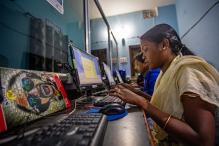Yingdan Lu from the Stanford Screenomics Lab will visit United Nations University Institute in Macau to share her research "Homogenized and Localized: A Comparison of Smartphone Logs from Myanmar, China, and the United States."
ABSTRACT
Homogenization and localization are dual concepts describing how media technology is absorbed into the lives of different groups. In this paper, smartphones — as the predominant media technology of our era — are examined for signals of either phenomenon. We compare unique longitudinal records of smartphone activity collected at five-second intervals from Myanmar, China, and the United States. Our results show that both outcomes occur. We find that total hours of smartphone usage, the total frequency of smartphone usage, and the average duration of gaps between smartphone activity are all significantly different across locations, while the average duration of smartphone usage sessions, and the rapidity of smartphone usage sessions, are not significantly different across locations. We interpret these differences as signals of localization based on restraints and affordances, while similarity in session durations is interpreted as the homogenization of temporal usage decisions.
SHORT BIO
Yingdan Lu (yingdan@stanford.edu) studies social media and political communication in the Department of Communication at Stanford University. Her research focuses on social media use, political activity and information inequality in authoritarian regimes. Methodologically, she combines different methods like text analysis, machine learning and deep learning with large datasets collected from social media and mobile phones to examine empirical questions.
Screenomics Lab
Starting from 2016, the Stanford Screenomics Lab has been building a framework to study moment-by-moment changes in how people use digital media by recording screenshots from personal digital devices every five seconds. To date, they have collected over 25 million screenshots from adults and children in the US, China, and Myanmar. The data are being used to study the role of new media in a breadth of areas including, for example, the influence of social media on politics and democracy, development of precision health diagnostics and interventions, the role of media in the lives of people living in poverty, and the development of intimate social relationships via media. For more information, feel free to check out their website: https://screenomics.stanford.edu.
For other research projects, publications and working papers, here is the publication page of our lab: https://screenomics.stanford.edu/publications/.



